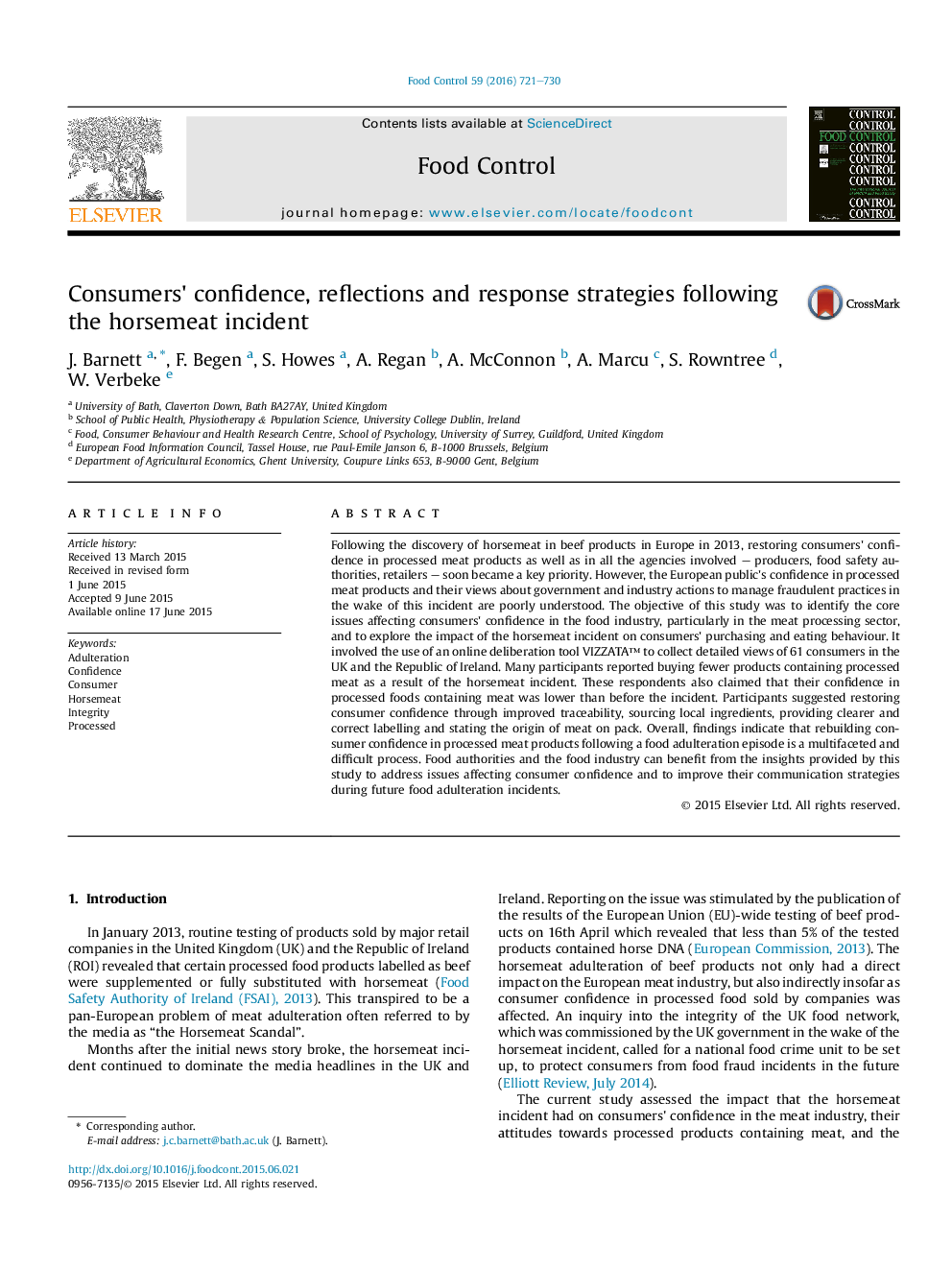| کد مقاله | کد نشریه | سال انتشار | مقاله انگلیسی | نسخه تمام متن |
|---|---|---|---|---|
| 6390689 | 1628403 | 2016 | 10 صفحه PDF | دانلود رایگان |
- This study used Vizzataâ¢, a validated online research method enabling deliberation.
- Three themes were identified based on participants' responses to content.
- Diminished confidence was of greater concern than potential health consequences.
- Consumers were surprised at the length of supply chains exposed by the incident.
- Consumers strongly intend to change individual practices to increase confidence.
Following the discovery of horsemeat in beef products in Europe in 2013, restoring consumers' confidence in processed meat products as well as in all the agencies involved - producers, food safety authorities, retailers - soon became a key priority. However, the European public's confidence in processed meat products and their views about government and industry actions to manage fraudulent practices in the wake of this incident are poorly understood. The objective of this study was to identify the core issues affecting consumers' confidence in the food industry, particularly in the meat processing sector, and to explore the impact of the horsemeat incident on consumers' purchasing and eating behaviour. It involved the use of an online deliberation tool VIZZATA⢠to collect detailed views of 61 consumers in the UK and the Republic of Ireland. Many participants reported buying fewer products containing processed meat as a result of the horsemeat incident. These respondents also claimed that their confidence in processed foods containing meat was lower than before the incident. Participants suggested restoring consumer confidence through improved traceability, sourcing local ingredients, providing clearer and correct labelling and stating the origin of meat on pack. Overall, findings indicate that rebuilding consumer confidence in processed meat products following a food adulteration episode is a multifaceted and difficult process. Food authorities and the food industry can benefit from the insights provided by this study to address issues affecting consumer confidence and to improve their communication strategies during future food adulteration incidents.
Journal: Food Control - Volume 59, January 2016, Pages 721-730
